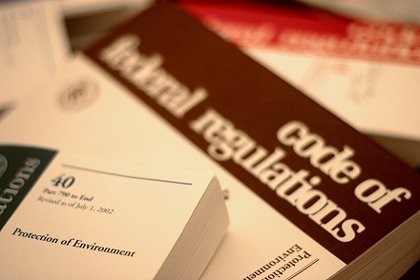The Misguided Notion of a Regulatory Cap

The idea of a regulatory cap has been kicking around in conservative policy circles, but it has now gained an important adherent in the form of Governor Mitt Romney. He pledges to impose “a regulatory cap of zero dollars on all federal agencies.” To translate this into ordinary English, a zero cap means that, if an agency wants to adopt one regulation to protect the public, it needs to abolish an existing regulation – even if both regulations produce benefits that are greater than their costs, and even if they affect different companies. To give a concrete example, if FDA wanted to ban a chemical that causes cancer in foods, it would have to repeal the ban on another carcinogen or allow more e. coli on meat. That’s a bit hard to fathom.
What’s the rationale for a regulatory cap? Here’s how the Romney website explains it:
An agency may be able to conceive of ten different regulations, each imposing costs of $10 billion while producing at least as much in social benefit. Moving forward might sound like a great idea to the typical regulator. But imposing those regulations, no matter what the social benefits, has a similar effect to raising taxes by $100 billion. Regulatory costs need to be treated like the very real costs they are.
The analogy between a tax and a regulation is appealing, since a regulation often requires a company to spend money. But the analogy is misleading. If a regulation produces greater benefits than costs, it’s not like a tax that just transfers funds from individuals to the government. Instead, it’s an investment that makes society as a whole better off. There’s also another key distinction between regulations and taxes. Income taxes reduce the returns to working and saving, but regulations reduce the returns from polluting, contaminating food, discriminating against women and minorities, defrauding investors, and undermining the stability of the banking system. As the tech people say, that’s a feature, not a bug.
There’s very little evidence that regulations are hurting the economy, and no evidence at all that we have too many regulations whose benefits exceed their costs. Governor Romney’s website refers to an estimate of the cost of regulation as “$1.75 trillion annually—much higher than the entire burden of individual and corporate income taxes combined.” That’s over 10% of the country’s GDP. The implications are that a tenth of the nation’s employees and resources are devoted to regulatory compliance, and that people would have much more money in their pockets if we doubled taxes (raising the top rate to 70%) while eliminating regulation. That strains credulity. Thus, it’s not clear that a regulatory cap would be addressing a real problem.
In the end, a regulatory cap amounts to a pretext for repealing regulations or blocking new ones without regard to their benefits. A more sensible approach for conservatives is to continue to insist on cost-benefit analysis, rather than a blinkered approach that only considers one side of the balance.



